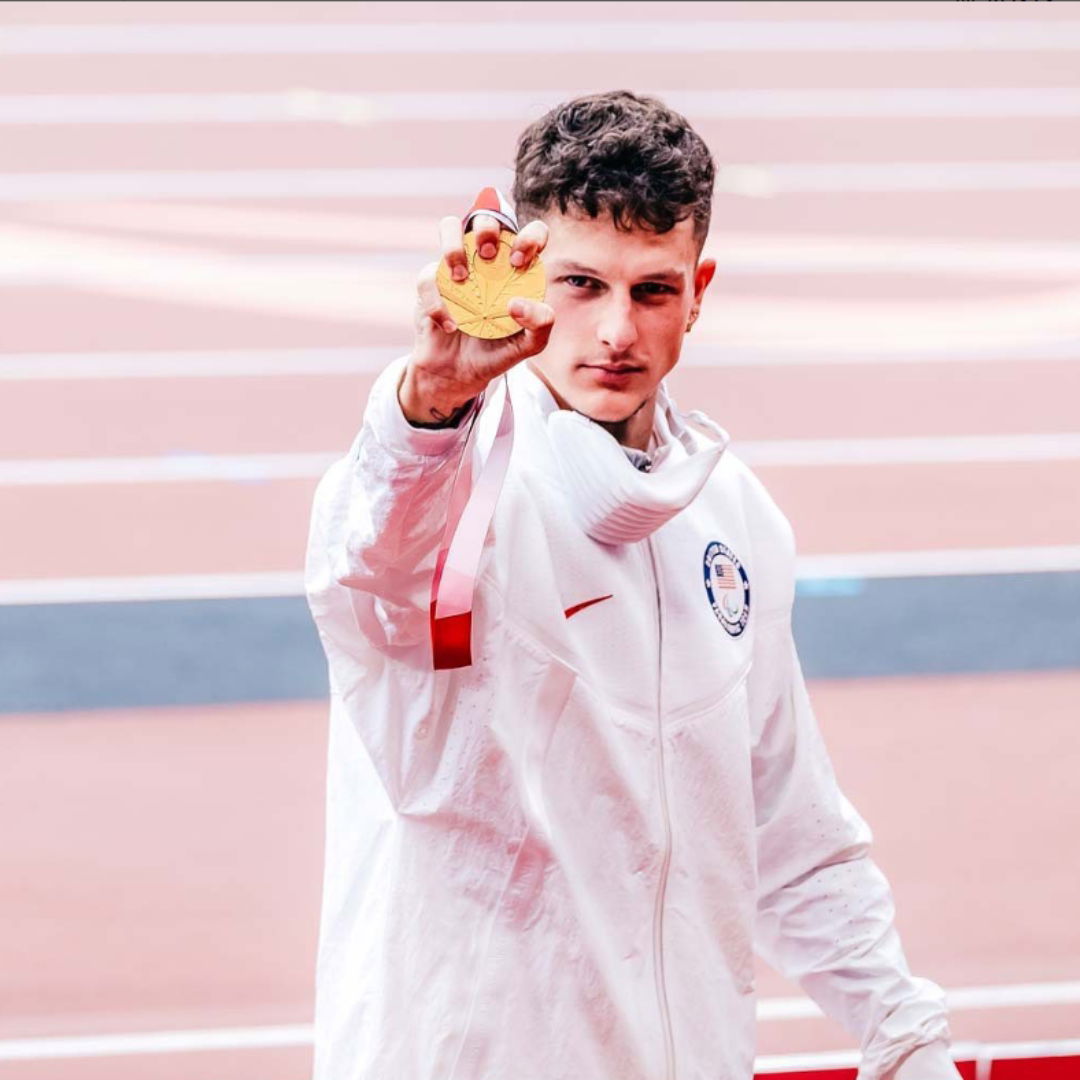

Are Paralympians considered Olympians? Absolutely, they are! Just because they have disabilities doesn’t mean they aren’t athletes in every sense of the word. Take sprinter Nick Mayhugh, for instance. At 14, he started having trouble with his left side and had a grand mal seizure, which led to a cerebral palsy diagnosis. But did he let that stop him? Not at all.
Watch What’s Trending Now!
Although soccer was his first love, Mayhugh transitioned to track and field when he realized soccer wasn’t on the Tokyo Paralympics roster. Despite facing numerous challenges during this shift, he’s now vocal about the hurdles that Paralympians encounter in the track and field.
Nick Mayhugh recently made a powerful statement on X, expressing, “Listen, we as Paralympians dont want to be treated like Olympians. We arent Olympians. We dont think of ourselves as Olympians and we are PROUD to be Paralympians. What we want is to be SEEN as athletes like any1 else. Cheer, boo, laugh, make memes! Don’t treat us any less!!”
ADVERTISEMENT
Listen, we as Paralympians dont want to be treated like Olympians. We arent Olympians. We dont think of ourselves as Olympians and we are PROUD to be Paralympians. What we want is to be SEEN as athletes like any1 else. Cheer, boo, laugh, make memes! Don’t treat us any less!!
— Nick Mayhugh ⚡️ (@nickmayhugh) September 3, 2024
This message followed his appearance at the Stade de France on August 31, where he competed in the men’s 100m T38 final and finished seventh. Despite the humbling experience of performing in front of 70,000 people, Mayhugh embraced it with gratitude and humor, looking forward to future competitions.
Mayhugh’s journey has been a rollercoaster. After his impressive debut at Tokyo 2020, where he won three gold medals, one silver, and set a world record, he faced a challenging period of depression and uncertainty. He had expected that winning would bring lasting happiness, but instead, he struggled with feelings of emptiness. This emotional difficulty was exacerbated by a reclassification for the Paris 2024 cycle, which limited his ability to compete in multiple events.
ADVERTISEMENT
To adjust, Mayhugh added the long jump to his repertoire and found support from elite athletes like Noah Lyles, the Olympic gold medalist in the men’s 100m.
ADVERTISEMENT
Nick Mayhugh went from fish out of the water to flourishing with top Olympians
Nothing in Paris could rival the nerve-wracking experience Mayhugh faced on his first day of training with Noah Lyles and other Olympic hopefuls in Clermont last October. As he stepped onto the track, he found himself surrounded by elite athletes like Elija Godwin, Udodi Onwuzurike, Gina Luckenkemper, and Wayde van Niekerk—“millions and millions of dollars of feet on the track,” as Mayhugh put it.
At that moment, he felt utterly out of place, especially since he was a former soccer player who had only recently taken up track, and he wasn’t even sponsored at the time. Watching athletes collapse in exhaustion and having Brauman mark their spots with chalk lines was a stark contrast to his own green-haired, rookie appearance.
Top Stories
Bill Cowher’s Strong Message to Steelers on Firing Mike Tomlin After HC’s Blunt Playoff Message
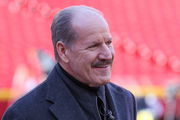
Alex Pereira Confirms Major Tracy Cortez Relationship Status Update After Viral Marriage Proposal Clip

Andy Reid Fires Coach In Attempt to Rebuild Staff After Receiving HC Requests For Chiefs’ Coordinators
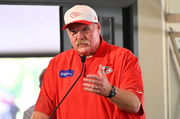
Who Are the Announcers, Referees, & Sideline Reporters for Ole Miss vs Miami? Everything You Need to Know for Fiesta Bowl

Congratulations Pour In After USA Basketball Announces Female Athlete of the Year
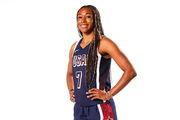
Meet Mario Cristobal’s Wife Jessica: All About Former Miss Florida World Winner and Miami Hurricanes’ HC’s Partner
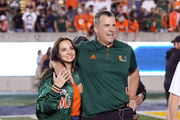
Despite the initial intimidation, Mayhugh quickly found camaraderie with the group. They welcomed him as one of their own, and though he wasn’t as fast as they were, he eagerly absorbed their advice and shared insights about the Paralympics. The bond he formed with Lyles, who had also faced his own hurdles, was especially meaningful.
ADVERTISEMENT
Lyles’ encouragement and their shared history from Northern Virginia helped Mayhugh navigate the challenges of his new classification and the emotional aftermath of Tokyo 2020. As he prepares for Paris, Mayhugh’s goal is to surpass his previous achievements by focusing on personal growth, all while embracing the support of his new training family.
ADVERTISEMENT
ADVERTISEMENT
ADVERTISEMENT

